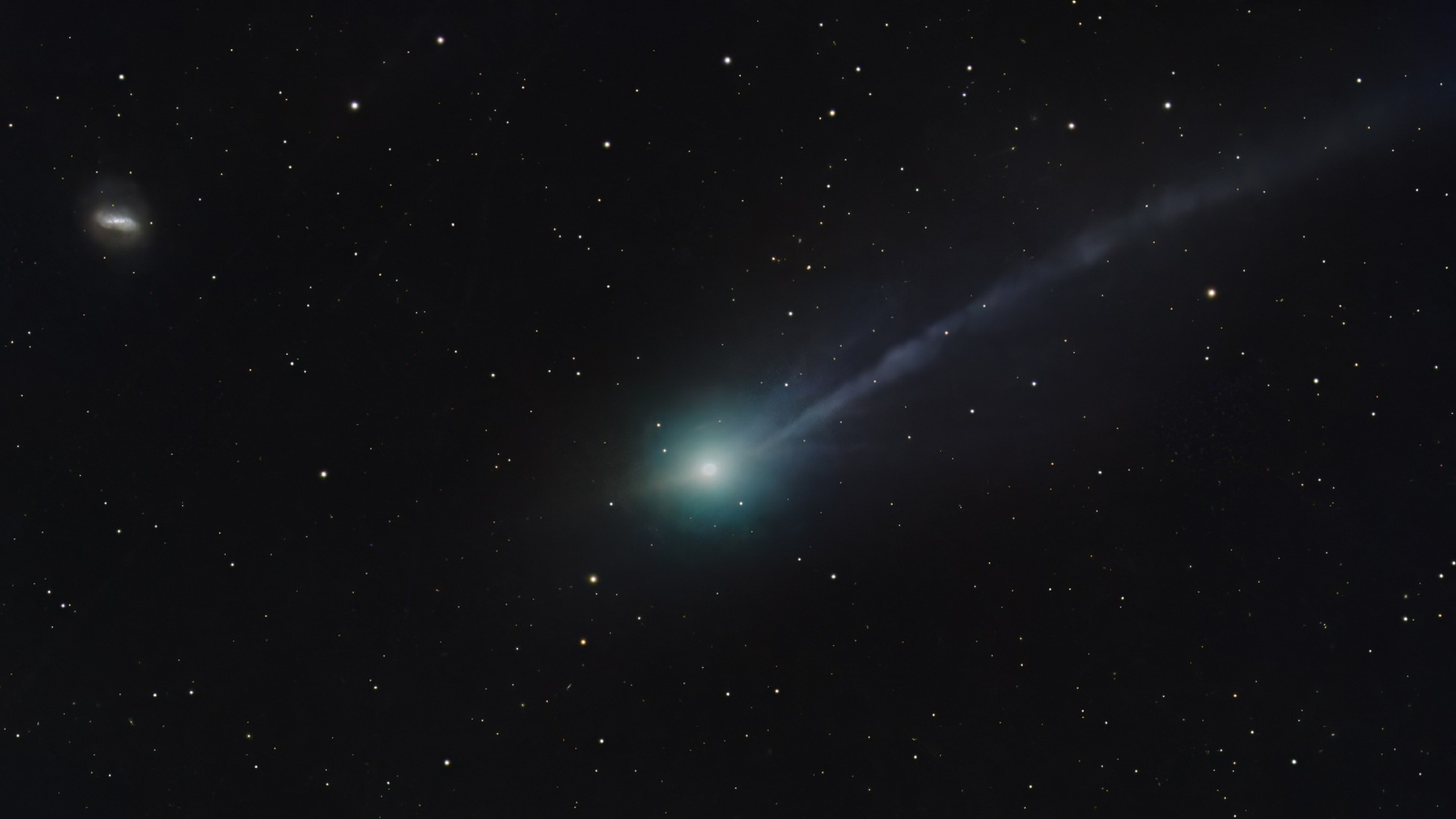Science News: Recent scientific discoveries and expert analysis
Read the latest science news and recent scientific discoveries on Live Science, where we've been reporting on groundbreaking advances for over 20 years. Our expert editors, writers and contributors are ready to guide you through today's most important breakthroughs in science with expert analysis, in-depth explainers and interesting articles, covering everything from space, technology, health, animals, planet Earth, and much more.

Explainers | Everything you need to know about the science news that matters.

Science Spotlight | Shining a light on new science transforming our world.
Latest news
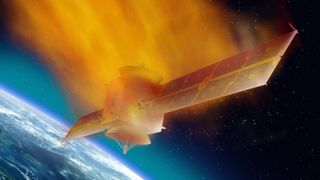
Today's biggest science news: Farewell comet 3I/ATLAS | Starlink tumbles from orbit | AI’s giant carbon footprint
By Patrick Pester, Ben Turner last updated
LIVE Friday, Dec. 18, 2025: Your daily feed of the biggest discoveries and breakthroughs making headlines.
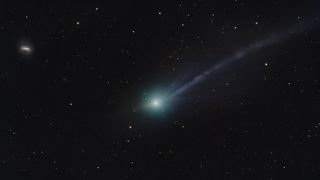
Interstellar comet 3I/ATLAS makes closest pass of Earth. Where's it heading next?
By Patrick Pester published
Everyone's favorite interstellar comet, 3I/ATLAS, flew past Earth overnight, coming within about 168 million miles (270 million kilometers) of our planet.

Comet 3I/ATLAS reaches its closest point to Earth tonight: How to see it
By Jamie Carter last updated
Comet 3I/ATLAS, the third interstellar object ever detected, reached its closest point to Earth overnight from Thursday to Friday (Dec. 18 to 19), and it remains in a good viewing position tonight. Here's how to see it.
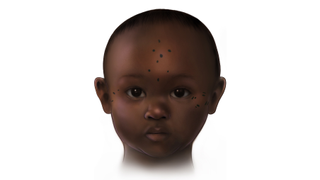
1,400 years ago, Nubians tattooed their toddlers. Archaeologists are trying to figure out why.
By Kristina Killgrove published
More than a dozen mummies of kids with facial tattoos were found at an archaeological site in Christian-era Nubia.

Japan trials 100-kilowatt laser weapon — it can cut through metal and drones mid-flight
By Fiona Jackson published
A new high-power laser system will soon be sent to sea for its first tests under maritime conditions.
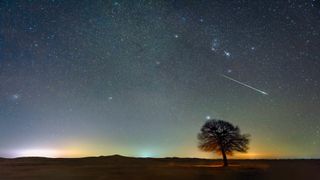
Ursid meteor shower 2025: When and where to see 'shooting stars' on the longest night of the year
By Jamie Carter published
Here's how to see the Ursid meteor shower, which peaks in dark skies close to a new moon this year.
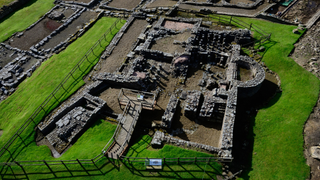
Diarrhea and stomachaches plagued Roman soldiers stationed at Hadrian's Wall, discovery of microscopic parasites finds
By Kristina Killgrove published
Analysis of latrine sediments at the Roman fort of Vindolanda has revealed that at least three parasites were widespread among Roman soldiers.
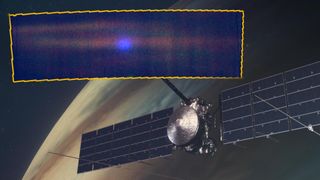
NASA eyes 3I/ATLAS with alien-hunting Clipper spacecraft in new image
By Brandon Specktor published
NASA's alien-hunting Europa Clipper spacecraft took seven hours of ultraviolet observations of interstellar comet 3I/ATLAS while both objects zoom toward Jupiter.
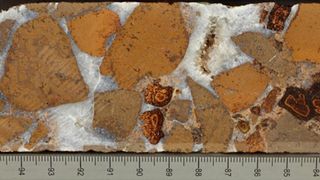
Undersea lava rubble acts as a 'sponge' for carbon dioxide, study finds
By Skyler Ware published
Lava rubble at the bottom of the sea is acting like a giant "sponge" for carbon dioxide, ancient cores reveal.

It matters what time of day you get cancer treatment, study suggests
By Clarissa Brincat published
Giving immunotherapy earlier in the day can significantly extend patients' survival, compared to giving treatment later in the day, a new study of lung cancer shows.
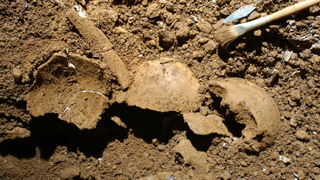
Oldest known evidence of father-daughter incest found in 3,700-year-old bones in Italy
By Kristina Killgrove published
Archaeologists have found the earliest DNA evidence to date of a father-daughter pairing.
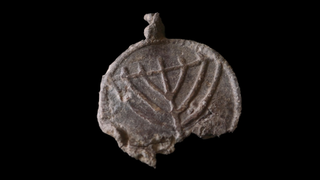
Rare 1,300-year-old medallion decorated with menorahs found near Jerusalem's Temple Mount
By Tom Metcalfe published
An excavation at the City of David in Jerusalem unearthed a 1,300-year-old medallion decorated with a seven-branched menorah on each side.
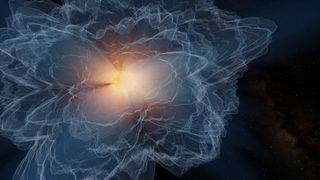
NASA's Parker Solar Probe mapped an unseen part of the sun at its most active moment
By Joanna Thompson published
Data from NASA's Parker Solar Probe has enabled astronomers to map the unssen surface of the sun's atmosphere for the first time.
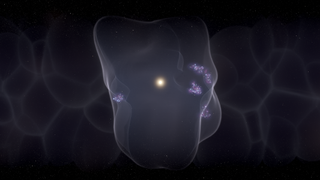
Mysterious, irradiated 'scar' in our galaxy may finally have an explanation
By Sharmila Kuthunur published
Astronomers traced a mysterious 'scar' of ionized gas around the solar system to two stars that had a close flyby with our sun millions of years ago.
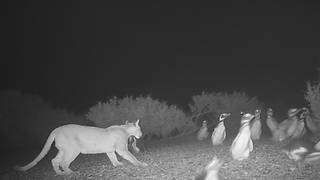
Pumas in Patagonia started feasting on penguins — but now they're behaving strangely, a new study finds
By Skyler Ware published
Pumas in Patagonia, Argentina are eating penguins in a national park — and it's changing how the big cats are interacting with each other.
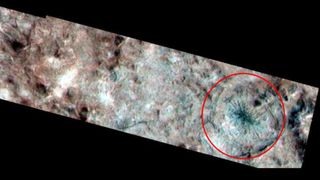
Spiders on Jupiter? Scientists uncover secret origins of arachnid-like 'demon' lurking on gas giant's moon.
By Harry Baker published
A new study reveals the likely origin of a mysterious spider-like pattern first spotted on Jupiter's moon Europa in 1998. The finding could have implications for a NASA spacecraft en route to the frozen world.

Detectorists find Anglo-Saxon treasure hoard that may have been part of a 'ritual killing'
By Kristina Killgrove published
These Anglo-Saxon accessories were recovered from the side of a hill in England and may be from a hoard, a ritual deposit or a collection of stolen items.
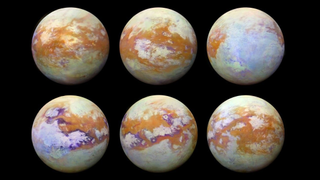
Saturn's largest moon may be riddled with 'slushy tunnels' that contain alien life, new study hints
By Elizabeth Howell published
Decades ago, a spacecraft suggested Saturn's largest moon, Titan, had an ocean. New observations suggest that the liquid may look more like slush.
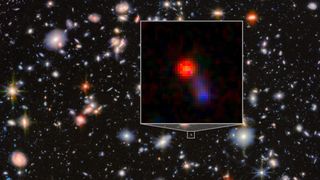
James Webb telescope finds supermassive black hole hidden inside 'Jekyll and Hyde' galaxy
By Patrick Pester published
The discovery of a hidden supermassive black hole inside an ancient galaxy suggests that some of our universe's most extreme objects could be invisible unless observed in infrared wavelengths, James Webb telescope observations reveal.
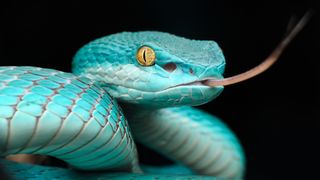
Snakes' mind-bending 'heat vision' inspires scientists to build a 4K imaging system that could one day fit into your smartphone
By Fiona Jackson published
The human eye can only detect wavelengths in the visible light range, but a new imaging system will let us "see" infrared radiation using smartphones.
Get the world’s most fascinating discoveries delivered straight to your inbox.



